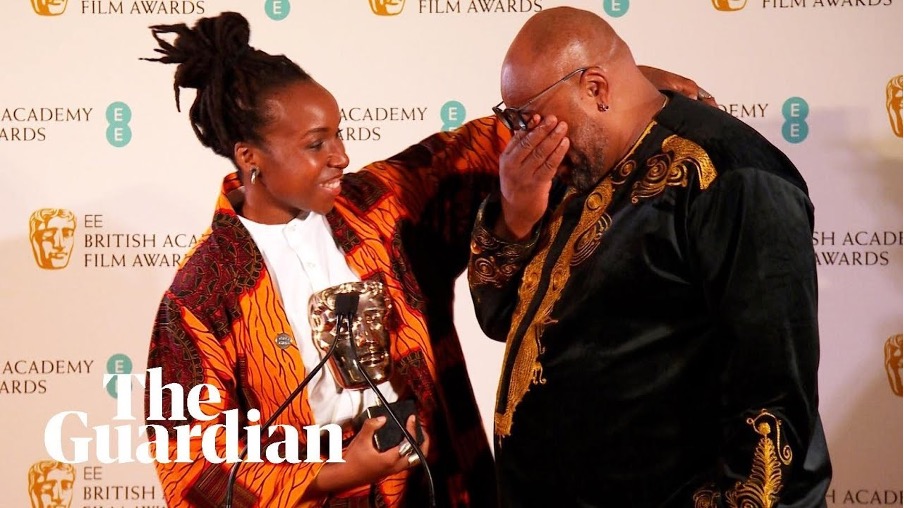
It’s been over a year since I wrote the blog ‘Dear White People in the UK’. In the aftermath of the murder of George Floyd in the USA, Black Lives Matters (BLM) protests happened across the world. I wrote that blog on my personal website after the black lives matters protests happened – to explain to people in the UK why people were protesting here and to put in one place a list of information and resources – for the many people who asked me for advice about what to do. Some of the resources were suggested to me by white colleagues.
The title – was a little provocative but it was an extension of a movie/tv-series at the time from the USA called ‘Dear White People’ about a university campus with issues of a racial divide and a black student body that run a radio show called ‘Dear White People’.
I shared the blog on social media and the NHS Leadership put it on their website as one of the many resources for leaders. I honestly don’t know why the media has picked this up (over a year later). The original blog, like this one is not policy or guidance –– it a snapshot of a moment in time that reflects the environment at that point in time.
In my role as an equality manager, I was facilitating conversations between people of all ethnic groups in the organisation I was working in and former organisations I worked in, and people who just wanted to talk from all parts of my life. Views from all angles – with one joining theme – people didn’t know how to talk about race. They knew that racism was bad but everyone’s understanding of racism was different and the people were more open to discuss it but there was no framework or guidance here in the UK about HOW to discuss it.
One way of reducing racial division is to promote empathy through discussion. My blog aimed to provoke thought and discussion for all people about what the concept of race is and how the concept of race may be different for different groups. In a world where leaders have to manage staff and provide services to people who are classed as different racial groups, with known disparities in outcomes (education, justice, employment and health), those leaders must have some understanding of what those disparities look and feel like, as well as what causes them – if they are going to remove them.
Some part of any conversation about race – means talking about whiteness. And as this is a relatively new discussion (outside of academia) we can expect as we explore the history and concepts of race that our thinking will be constantly evolving. I have made no demands on anyone, just suggested (for those who want it) ways to understand what ‘race’ is in our society. We can all agree that it’s a social construct that doesn’t really exist so then we have to understand why it’s causing so many problems.
The title was a little provocative but it was an extension of a movie/tv-series at the time from the USA called ‘Dear White People’ about a US university campus with issues of racial divide and a black student body that run a radio show called ‘Dear White People’.
Since I wrote the blog – I have seen even more resources developed, there have been engaging and real conversations at all levels of organisations about HOW to achieve meaningful change. At the most basic level diversity data collection and analysis is improving with more complex ethnic pay gap, and health inequalities statistics. With the government reporting on these disparities and committing to provide guidance on ethnicity monitoring and pay gap reporting.
In just this last year there have been many thought-provoking publications. From the UK: Kehinde Andrews book, The New Age of Empire, explains the continued impact of empire on all nations and all socio-economic groups. What White People Can Do Next- from Allyship to Coalition, by Emma Dabiri, is a short useful read explaining the topics (e.g. stop the denial and understanding coalition) that block us from moving the conversation forward on racial equality. We Need New Stories, by Nesrine Malik, actually explains the ‘culture wars’, why they are happening and how to engage with them intelligently. This is Why I Resist: Don’t Define my Black Identity, by Dr Shola Mos-Shogbamimu. From the USA, How to be an Anti-racist by Ibram X. X. Kendi, reframes our discussions about racism from ‘structural racism’ to removing ‘racist policies’.
And articles in mainstream media, that pre-BLM protests would only have been found in specialised publications. For example, an article in Vogue, Why I Don’t Refer to My Hair as ‘Dreadlocks’ about the history of ‘dreadlocks’ and their place in black cultural history. Not to mention the non-mainstream media still raising the voices of those who are experts on these topics, an engaging video by Ash Sarker, in Double Down News, critiquing the government’s Commission for Ethnic and Race Disparities’ Race Report.
Maybe now is the time for a ‘Dear White people in the UK – part two’ – because we are starting to have more complex and meaningful discussions and the conversation has only just begun.
Aishnine Benjamin

